Australian Aboriginal actor David Gulpilil (Charlie’s Country) returns to his Arnhem Land hometown with filmmaker Molly Reynolds to explain ‘what happened to my culture when it was interrupted by your culture’.
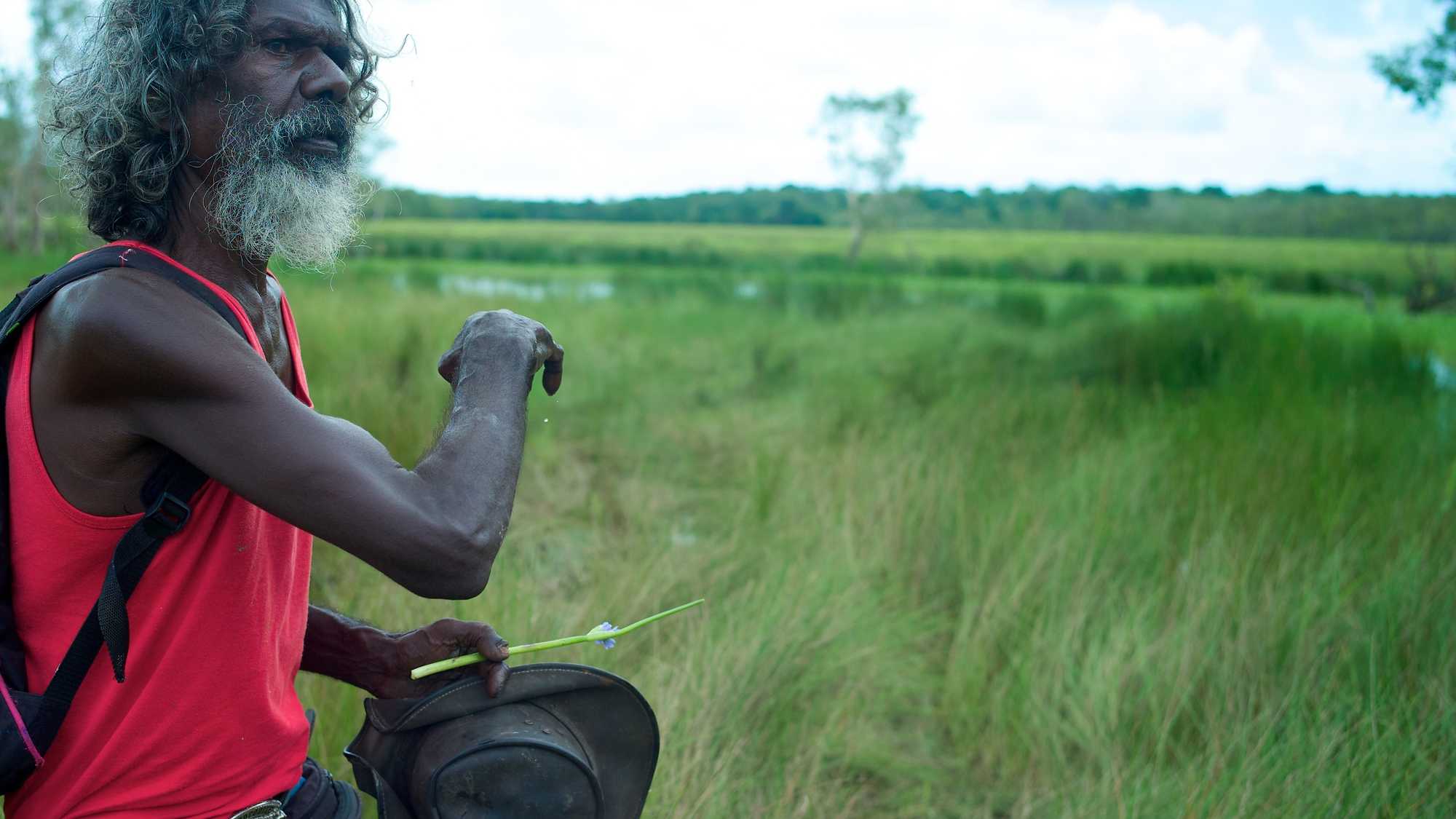
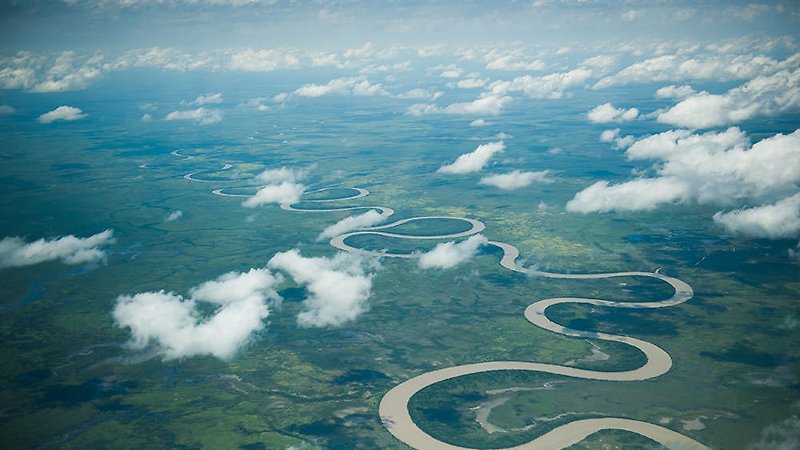
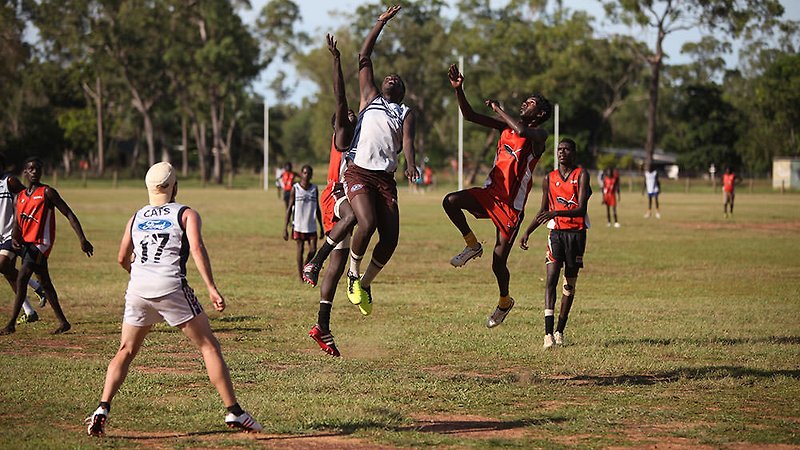
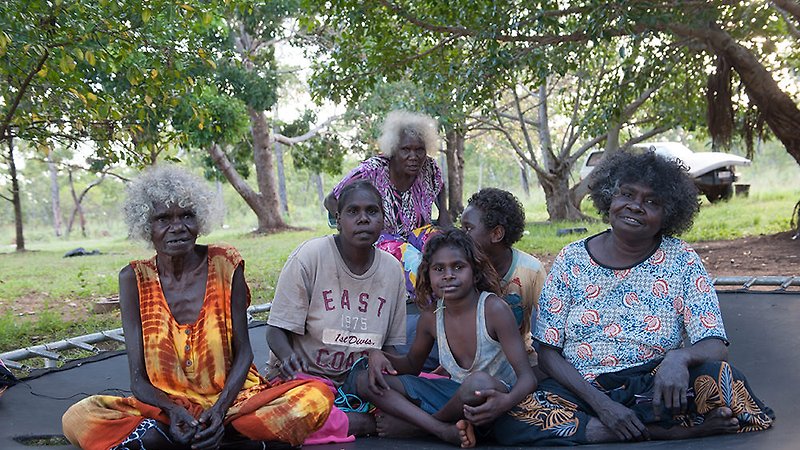
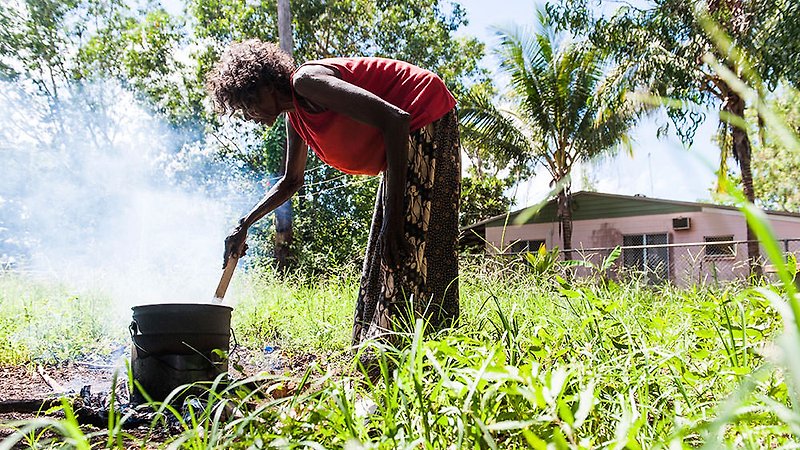
We can’t get there if you think you know more about us than we do.
Screened as part of NZIFF 2016
Another Country 2015
A companion piece to her partner Rolf de Heer’s Charlie’s Country (NZIFF14), Molly Reynolds’ trenchant, wryly measured documentary is addressed explicitly to non-Aboriginal Australia. The concept is simple and delivered with devastating clarity: David Gulpilil, Charlie’s Country’s (and Australia’s only) internationally renowned indigenous star, tells us the history of the community of Ramingining in the Northern Territory that he calls home. He provides laconic commentary on successive government projects to control the lands of the Yolngu people, to put the people to work, eliminate their ancient cultures and corral random groups into fixed communities where no towns stood before. Even if the general history is painfully familiar, there’s such vitality in his anecdote and such mettle and gallows humour in his delivery that you’re likely to experience this movie bolt upright in your seat.
“The richness of the film arises from the earthy elegance of Gulpilil’s narration matched with the uncluttered beauty of Reynolds’ photography. Her cameras, which explore the rural town, feel nothing if not embraced by the community…
Anchored by an acute sense of place, Gulpilil and his co-writers see Ramingining as something of a microcosm. It’s a location with a history – starting with its construction in an illogical place – and is symptomatic of countless other communities. Also, it acts as a case study to springboard discussion of wide-reaching ignorance towards issues around compatibility of Indigenous and non-Indigenous communities.” — Luke Buckmaster, The Guardian
